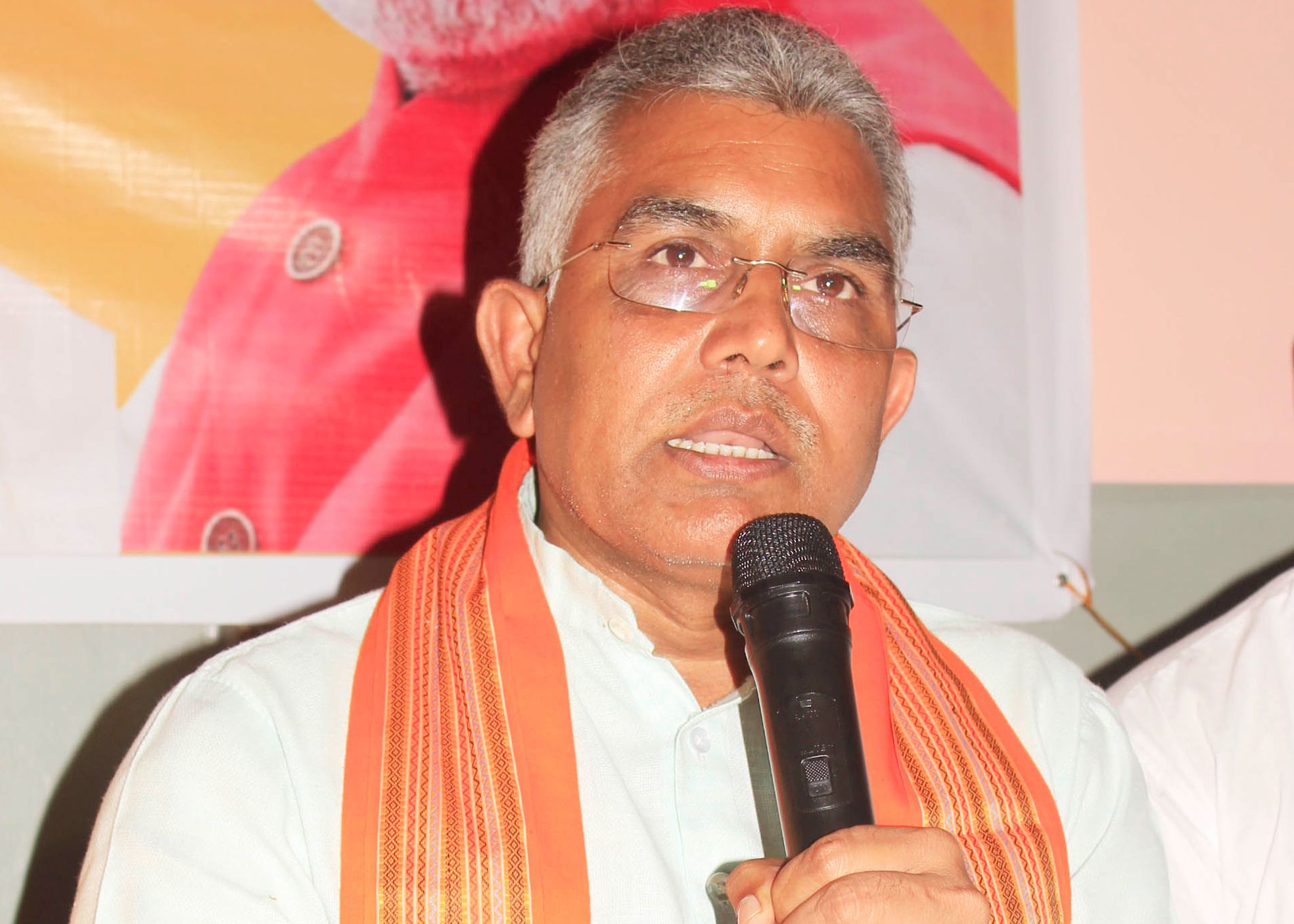Bengal BJP president Dilip Ghosh on Tuesday said whichever party or state government that had listened to Mamata Banerjee was no longer with her.
“Whoever had listened to her (Mamata) or were apparently with her had been to Delhi (to attend the January 17 meeting on the NPR)… they are no longer with her. She should focus on the development of Bengal now. The law and order is in a bad shape; there has been slackening in industrial investment and the education system is in a shambles. She was voted to power to take care of these issues and not to carry out an anti-CAA campaign,” Ghosh said here today.
He was replying to questions from journalists on the chief ministers’ appeal to north eastern states to get motions passed in Assemblies against the CAA and the NPR.
After being re-elected as the state BJP chief, Ghosh was in north Bengal for the first time on Tuesday. He reached Cooch Behar in the morning and then participated in a road show in support of the CAA.
In the evening, Ghosh, along with local MP Nisith Pramanik and district BJP leaders, addressed a public meeting at Tufanganj.
“We won Cooch Behar because people stood with us and voted against Trinamul’s atrocities. All of us witnessed what Trinamul did during the panchayat elections. We would not take rest till the Assembly elections of 2021. Civic elections are likely to be held this year and the BJP will make all efforts to ensure that competent candidates are fielded in each seat and won,” Ghosh said at the public meeting.
Earlier, Ghosh had told the journalists that the Bengal government was not utilizing properly funds allotted by the Centre for the development of erstwhile Bangladeshi enclaves. On Monday, the residents from the ex-enclaves had been to the district magistrate’s office in Cooch Behar and demanded citizenship cards, land documents and infrastructure development.
“Funds allotted for these people are utilised for other purposes and we suspect Trinamul leaders are involved in it. They have voter cards but they need to walk miles to collect rations. The state government is to blame for it,” said Ghosh.

